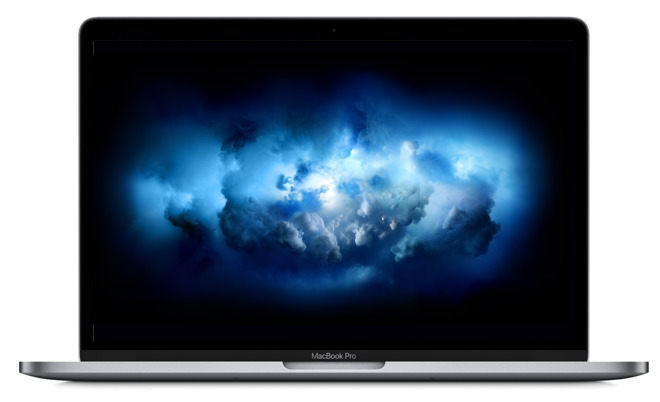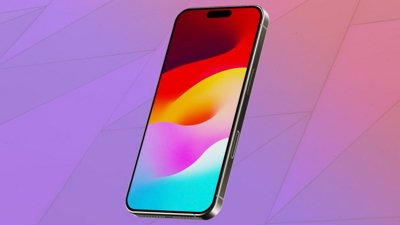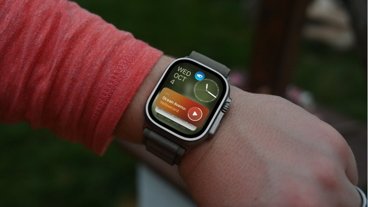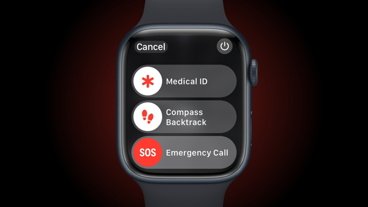Technology-centric YouTuber Dave Lee claims the thermal design of Apple's latest 15-inch MacBook Pro does not provide sufficient cooling for Intel's Core i9 processor, causing the chip to throttle down performance to prevent serious damage.
Intel's 2.9GHz six-core Core i9 processor with Turbo Boost speeds up to 4.8GHz is offered as a premium $300 option on Apple's 2018 15-inch MacBook Pro with Touch Bar, but according to Lee, the chip is unable to reach its full potential due to the laptop's design.
In a video posted to his YouTube channel on Tuesday, Lee shows the top-of-the-line MacBook Pro running Adobe Premiere Pro at surprisingly low clock speeds. Tests conducted put the average clock on load at around 2.2GHz, well below the advertised 2.9GHz.
Lee suggests MacBook's cooling solution, an Apple-designed heatsink and fan module, is insufficient for the beefy Intel silicon.
"This i9 in this MacBook can't even maintain the base clock speed," Lee said. "Forget about Turbos and all that stuff, it can't even maintain the 2.9GHz base clock, which is absurd. This CPU is an unlocked, over-clockable chip, but all of that CPU potential is wasted inside this chassis, or more the thermal solution that's inside here."
Hammering the theory home, Lee posts Premiere Pro render times that show last year's MacBook Pro with Core i7 CPU can chew through a 5K clip in 35 minutes, outperforming the new, improved model with eighth-generation Core i9 chip by some four minutes. Both MacBooks are crushed by a Windows laptop, Gigabyte's Aero 15X, which renders the same clip in just over 7 minutes.
Lee illustrated the apparent thermal handicap by running the same test with the 2018 MacBook Pro in a freezer, dropping the render time down to 27 minutes.
It should be noted that Premiere Pro is not optimized for Mac, as evidenced by the Aero 15X performance. Lee failed to test render speeds with Apple's Final Cut Pro X, or any other app for that matter.
While thermal throttling is nothing new, especially in portables, Lee's findings are somewhat questionable in that assumptions are being made based on a single machine's performance with an unoptimized app. Making blanket statements without thorough testing is reckless at best and disingenuous at worst.
While Lee failed to reach out to Apple for comment, it is highly unlikely that the company would ship a flagship product without first rigorously testing its performance. That goes double for a device like MacBook Pro, considering the company's renewed vigor to serve the professional market.
 Mikey Campbell
Mikey Campbell

-m.jpg)






 William Gallagher
William Gallagher
 Andrew O'Hara
Andrew O'Hara
 Wesley Hilliard
Wesley Hilliard

 Malcolm Owen
Malcolm Owen
 Marko Zivkovic
Marko Zivkovic

 Chip Loder
Chip Loder




-m.jpg)




92 Comments
I started to question Dave2D approach when he tested multiple laptops. Sure it does thermal throttle but hell. Macs are optimized for Mac applications. This is simply stupid from him. Try to benchtest Final cut Pro from a PC. Even though this is impossible, I'm sure it would perform badly.
This doesn't surprise me too much. Doesn't the iMac Pro even do this?
It does surprise me a bit, though, that it would be slower than the 2017. Aren't both CPUs similar in terms of thermals? The same chassis should have similar thermal handling capabilities... though MBPs have never handled heat all that well in my experience. And, at least in the past, the problems went beyond the CPU throttling down, but resulted in damage to other components.
Time to speed up homegrown Apple CPU/GPU for performance and better thermal.